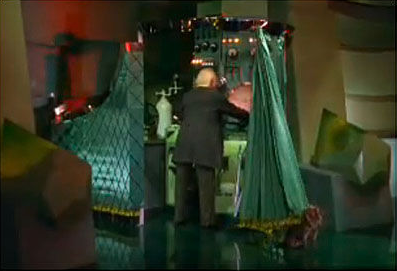|
home | what's new | other sites | contact | about |
|||
|
Word Gems exploring self-realization, sacred personhood, and full humanity
Quantum Mechanics
return to "Quantum Mechanics" main-page
What is science? Linus Pauling: "Science is the search for truth." Victor Weisskopf: "Science is the opposite of information," not a collection of facts but a process of discovery, a world of ideas. "Science is something children should do - not something that should be done to them." J. Robert Oppenheimer: “There must be no barriers to freedom of inquiry … There is no place for dogma in science. The scientist is free, and must be free to ask any question, to doubt any assertion, to seek for any evidence, to correct any errors.” Sir Oliver Lodge: “Science is incompetent to make comprehensive denials about anything. It should not deal in negatives. Denial is no more fallible than assertion. There are cheap and easy kinds of skepticism, just as there are cheap and easy kinds of dogmatism.” Alfred North Whitehead: “Familiar things happen, and mankind does not bother about them. It requires a very unusual mind to undertake the analysis of the obvious.” The great Linus Pauling offered the shortest definition, but my favorite: "Science is the search for truth." The word “science” comes to us from a Latin word meaning “knowledge.” Science is not just a body of knowledge, however, but an entire approach to knowledge acquisition, a discovery process. In science, this quest for knowledge, we are to move from the known to the unknown, ever expanding familiar horizons of what we know, or think we know, reaching for that far country – new perceptions, new insights, new understandings. In this journey of the mind, we might say, science is more about what we don’t know. And because we’re required to leave the familiar in order to venture into the unknown, then, by definition, we must expect to find ourselves in a strange land of new ideas. It can be uncomfortable at times, there can be cognitive dissonance, but it's just part of the game of science, and you have to be willing to play by the rules. In other words, if we’re not discomfited by the new data, by the new research, then we haven’t really gotten our money’s worth yet; it's just a rehash of the known, the warm-and-fuzzy. We’re still paddling around in the shallows, afraid to leave dry-dock, unwilling to face the great unknown - and there's plenty of it out there. Is there such a thing as “weird” science? Everything is simple; everything, in every field of research, quickly becomes elementary and old-hat, once you understand it. Any thinking mind, any mind alive and enquiring, knows this and has experienced this fall-from-mystique thousands of times over the years. Everything in the universe is beautiful in its simplicity, its elegance and beauty, once we truly perceive how it works. The early quantum fathers often spoke of this simplistic beauty in nature. we supply the “weird” In the history of the world, there has never been such a thing as a “weird” fact. This does not exist. Nature is constructed as an interlaced matrix of this-against-that, of energy and matter, of layers of complexity that evaporate into unified wholes. No aspect, no atom or particle, of any of this is “weird.” If we feel otherwise, the “weird” originates from our own narrow perspective. Consider this: There is no such thing as a “bad” day; we supply the “bad.” There is no such thing as “terrible” weather; we supply the “terrible.” These pejorative adjectives say nothing about the noun in question, but a great deal about the “I don’t have enough” mind of the speaker. And there is no such thing as “weird” or “crazy” quantum mechanics. Reality is as it is, and it is always, in its underlying essence, complete, whole, harmonizing, beautiful in its simplicity – once we unravel the mystery of knowledge guarding the new persepctive. My fundamentalist friends could not gainsay one word of what I was proposing. Facts, as they say, are stubborn things, and they could offer not one word of evidence that I was in error on any of my propositions. Instead – as we learned on the “clear thinking” page – they employed the “attorney’s last resort” ploy. They went for character assassination. It’s an old tactic, and it’s pulled out of the bag of tricks anytime you don’t have the facts on your side. Then you make a scene and hope to distract the jury with sensationalism. When you hear someone blathering about “weird” or “crazy” quantum mechanics, realize that the speaker is not offering a proper scientific mindset. These pejorative terms are meant to “poison the well” of public opinion, an attempt to dissuade you from expecting anything rational and coherent from this area of science. It's the Wizard of Oz shouting, "don't look behind that curtain."
The employment of “weird” and “crazy” in reference to quantum mechanics is a propaganda effort. It’s meant to throw you off track that you might not expect much from this area of research. It’s a fear-based attack. What is the hidden fear? An entire world metaparadigm hangs in the balance. We encountered this very same pathology in the “evolution” report. What is in question? What is the battle? The use of “weird” and “crazy” is part of a campaign to bolster the view that matter, and a materialistic view of life, is primary – as opposed to what the early quantum fathers discovered, that is, consciousness is the true ground of reality. This is a terrifying proposition to the materialist. It comes with a formidable array of frightening implications concerning, man’s nature, the afterlife, destiny, personal accountability, and the meaning of existence. And this is the real reason, the "reason behind the reason," why gunslinging terms such as “weird” and “crazy” are used to describe quantum mechanics.
|
|||
|
|
